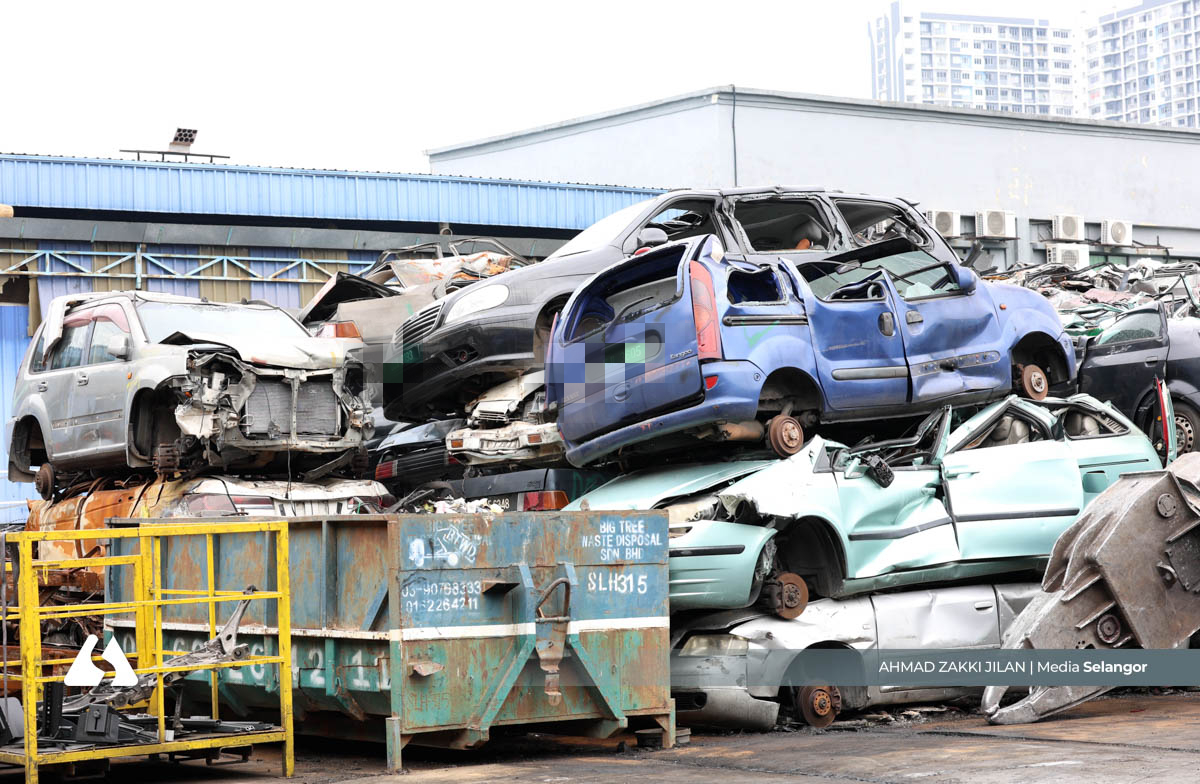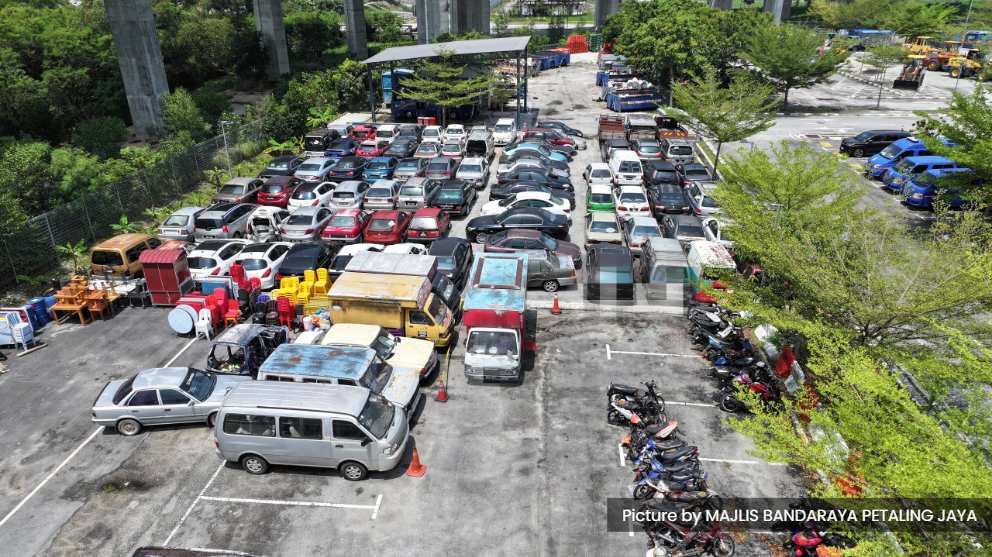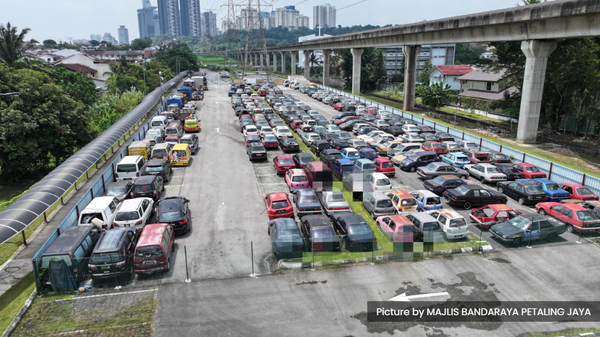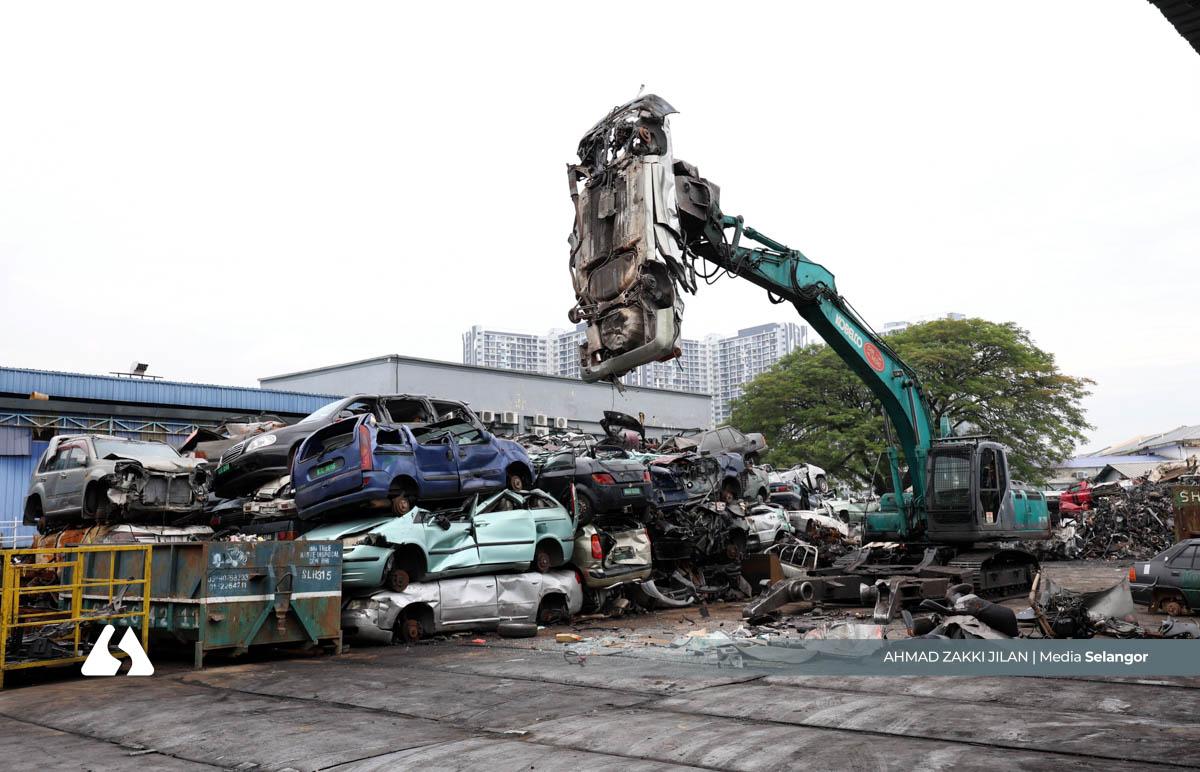SHAH ALAM, Oct 24 — The issue of abandoned vehicles in Selangor continues to persist despite numerous complaints lodged by residents with the local authorities.
However, unclear enforcement powers and cumbersome disposal procedures have left local councils trapped in a dilemma; they can see the problem, but cannot act.
To resolve this, the state government is now in discussions with its federal counterpart to amend existing laws governing vehicle disposal. The goal is to establish a clearer, simpler, and more effective national disposal mechanism to help the local authorities act more swiftly and lawfully.
Although the Transport Ministry (MOT) introduced the Online Deregistration System (e-Dereg) in 2024, enabling vehicle owners to apply for disposal online, many still choose to abandon their cars in public areas, apartment compounds, or open spaces, thereby becoming a community burden.
The current disposal system involves multiple agencies, including the police, the Road Transport Department (JPJ), insurance companies, the courts, and the local authorities, with lengthy, inconsistent procedures. The entire process, from towing to final disposal, can take several months or even longer.
At the same time, vague legal provisions lead to hesitation among the local authorities, who fear being sued by vehicle owners. This uncertainty hampers efficiency and causes derelict vehicles to pile up in council storage yards, adding to administrative costs and strain.

One vehicle involves multiple agencies
State executive councillor for local government and tourism Dato' Ng Suee Lim said the issue of abandoned vehicle disposal stems not from poor enforcement, but from outdated and inconsistent laws and systems.
“The disposal process involves many government agencies, from towing to official disposal, and the entire procedure is highly complex and time-consuming. This undermines on-ground effectiveness,” he told Media Selangor.
Ng added that the problem is not merely about urban cleanliness or aesthetics but also concerns the use of public space and community safety. As such, comprehensive legal and policy reform is necessary.
“The Selangor government is now working closely with the MOT and the Housing and Local Government Ministry (KPKT) to amend relevant legal provisions and develop standardised national operational guidelines,” he said.
Ng noted that although the local authorities have certain powers to tow vehicles, the process is often constrained by regulations requiring coordination with JPJ, insurers, and the police.
“There are still many grey areas in the law, and some clauses remain ambiguous. This exposes the local councils to legal risks from vehicle owners,” he said.
Even after a vehicle is successfully towed, Ng said that lengthy, complicated disposal procedures mean the vehicles often sit in council depots for months before being dismantled.
“The state government hopes the Federal government will soon introduce a new and more effective mechanism that provides clear powers to the local councils and reduces unnecessary legal risks,” he said.

Selangor open to 'Zero Abandoned Vehicles' mechanism
When asked whether the state would emulate Penang’s 'Zero Abandoned Vehicles in High-Rise Areas' initiative to tackle abandoned cars in apartment compounds, the councillor said they are open to adopting any effective model.
“As long as the policies and laws introduced by the relevant ministries are strong, lawful, and practical, Selangor is ready to adopt the best approaches.
“We do not want the public to misunderstand and think that the local councils are not doing their jobs. In reality, the delays occur not because councils are inefficient, but because of outdated and overlapping legal constraints,” he said.
Ng also emphasised that the public often fails to realise how complicated the disposal process truly is, yet is quick to blame the authorities when derelict vehicles are left unattended.
“Towing the car is only the first step. The real problem starts afterwards; many owners never come forward to reclaim their vehicles, causing storage depots to fill up and management costs to rise. This creates significant pressure on the local authorities," he concluded.




